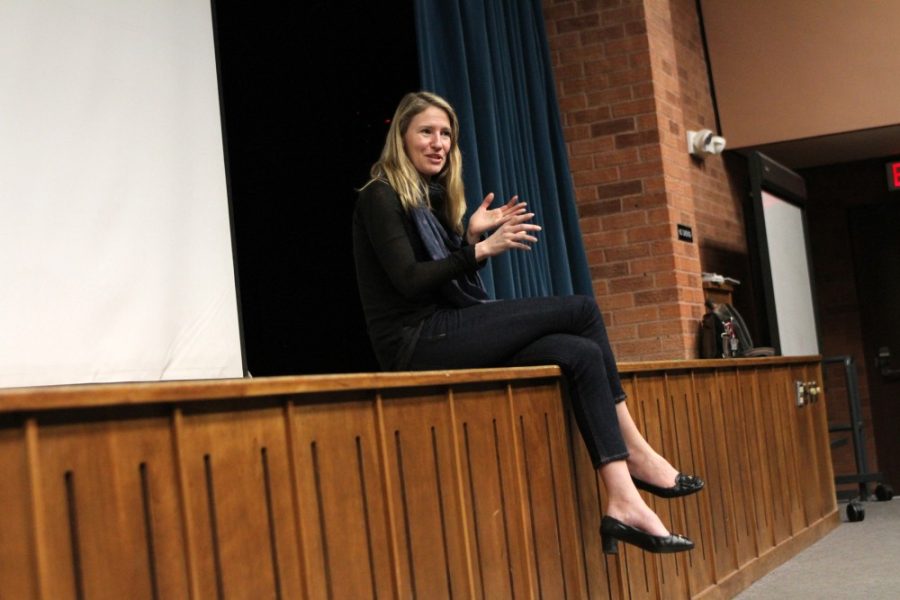The UA community came together Tuesday to view a documentary in which eight women who were sexually assaulted share their stories, and to ask the producer questions afterward.
“It Was Rape,” a documentary by Jennifer Baumgardner, showcases victims of rape from situations such as child molestation or being raped at a party where alcohol was available. The film screening was coordinated and sponsored by Wingspan Anti-Violence Programs, the Women’s Resource Center, Feminists Organized to Resist, Create and Empower (FORCE) and the OASIS Program.
“I feel like when you can get 75 to 80 people in a room to be together and think about difficult topics, it’s really wonderful,” Baumgardner said. “I felt like the questions were a little different than usual, which was kind of nice. I’m always asked how I find the people and how long it took.”
One attendee asked why there were only women in the movie, to which Baumgardner responded that it was because men were not ready to be the “poster child” of women raping men. To questions involving mandatory reporting of rape, Baumgardner said it should be the victim’s choice.
Some students also brought up the Steubenville rape case, a prominent story in the media about a 16-year-old who was raped by two football players.
Ashley Raddatz, an English freshman, asked what Baumgardner thought of the three-year sentence the rapists received in the Steubenville case, since possession of marijuana can carry sentences of five years.
“These are our values right now; it might not be our values, but these are our values that are in our lives,” Baumgardner responded. “I think the thing that would be the most interesting is if they can fully face what they did. If they can fully face what they did, they will repay their debt to society and become better people.”
Joni Northam, an international studies senior, asked if Baumgardner felt as though her work was being belittled or if she felt the need for more advocacy work.
“I did sort of feel like there is lots of work to do,” Baumgardner said. “I think about what they call a bystander — you know, everybody else, who’s not being super active but certainly not doing anything to interfere — so what’s going on in their minds? That’s a piece where I think there is a lot of potential for change.”
Baumgardner said that when she talked to the women in her documentary, almost everyone said the aftermath was far worse than the actual rape. One victim in the documentary, Baumgardner’s sister, spoke about people writing on her locker the word “slut” while another victim spoke of a “rape tape,” where men recorded vicious things over her favorite cassette tape.
However, there are things that the university can do for student victims of sexual assault that the police department can’t, said Megan McKendry, the violence prevention specialist for the OASIS Program. If students do report to the dean, she can help students change their classes so their attacker isn’t in their classes, or change their dorm.
“The University of Arizona does deal with sexual assault in a disciplinary process, and that’s a resource that’s available for you if you aren’t ready to report to the police,” McKendry said. “A theme I saw in the film is that many people took a while to talk to police departments about this.”









